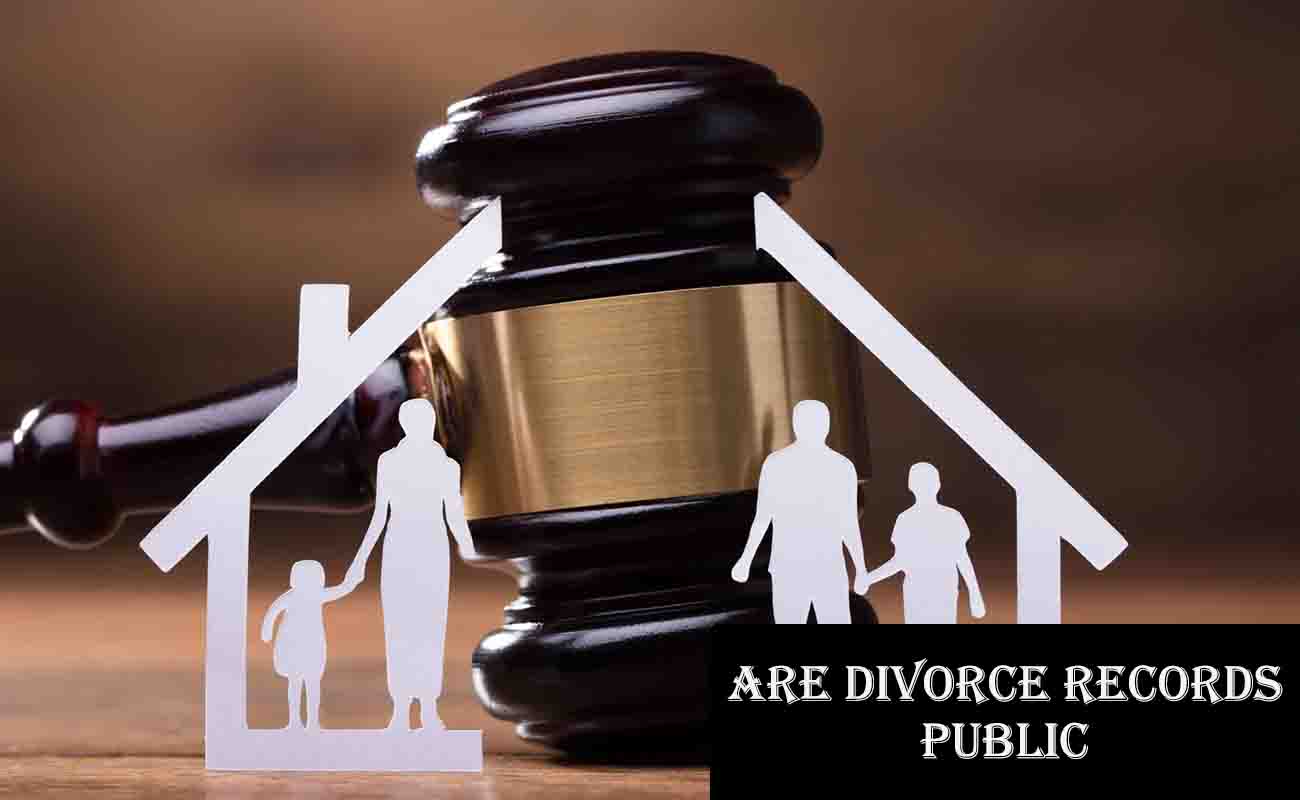If you’ve ever wondered, “Are Divorce Records Public?” you’re not alone. Many people have questions about how private divorce proceedings truly are and whether personal information becomes accessible to anyone. The answer can be complex, as it varies by jurisdiction and involves different levels of access to divorce records.

Here, I’ll explore what constitutes a public divorce record, the reasons these records are generally accessible, and steps you can take if privacy is a concern. Understanding how and when divorce records become public can help you make informed decisions about your own case or answer any lingering questions about privacy in divorce.
What Are Divorce Records?
Divorce records are official documents created by the courts during divorce proceedings. These records may include the divorce decree, settlement agreements, and any judgments or orders issued by the court regarding property division, spousal support, child custody, or other important matters. The two main types of divorce documents are:
- Divorce Decrees: This document is the court’s final ruling and includes details about the terms of the divorce, such as property division, custody arrangements, and alimony. A divorce decree is necessary for officially proving the dissolution of marriage.
- Divorce Certificates: Divorce certificates are more concise and typically only include basic information such as the names of the parties involved, the date of the divorce, and the location where it was filed.
Most people find these documents through court records, which are often accessible to the public. Divorce proceedings are generally a matter of public record, meaning that unless there’s a compelling reason to seal a case, much of the information is accessible to anyone who requests it.
Why Are Divorce Records Public?
You might wonder why divorce records are accessible to the public in the first place. The rationale stems from a principle of openness in the legal system. Court proceedings, including divorce cases, are considered public information to ensure transparency and accountability.
Public access to legal records reinforces confidence in the justice system by allowing citizens to see how cases are decided.
In divorce cases, making records public can prevent parties from hiding information, assets, or other details that might be relevant to the case. Public records can also help provide a reference for other cases, establishing legal precedents that lawyers and judges can reference.
What Information in Divorce Records is Public?
While divorce records are public, not every detail in a divorce case is accessible. Some information might be protected to a certain extent. For instance:
- Personal Identifying Information: Information like Social Security numbers, bank account numbers, and personal identification details are usually redacted or omitted from public records.
- Financial Information: Although some financial details may be included in public records, private matters involving finances are often limited to protect the individuals involved.
- Children’s Information: Courts generally aim to protect the privacy of minor children in divorce proceedings. Information like custody agreements, visitation schedules, and other sensitive matters related to minors is often kept private.
However, basic information about the divorce, including the names of the spouses, date of divorce, location, and terms such as alimony and property division, may be accessible to the public. If you’re concerned about privacy, it’s worth discussing with a legal expert to understand the specifics of your situation.
How to Access Divorce Records
If you’re trying to access divorce records, there are several ways to go about it, depending on the jurisdiction and whether the information is public.
- County Courthouse: Most divorce records are available at the county courthouse where the divorce was filed. You can visit the courthouse in person or contact them online to request access to the records. There may be a small fee for copying or viewing records.
- State Vital Records Office: In some states, basic divorce information like certificates or decrees can be accessed through the state’s vital records office. This is often more convenient for those who want limited information rather than complete case records.
- Online Databases: Many states and counties have digitized public records, allowing you to access certain divorce records online. Some third-party sites also aggregate public records for a fee, but they may have limited or outdated information.
- Hiring a Professional: If you’re unable to access specific records, hiring a private investigator or an attorney can sometimes help you obtain them. These professionals may have greater access to records, especially if you need more detailed information for legal or personal reasons.
Can Divorce Records Be Sealed?
In certain cases, a court may allow divorce records to be sealed, which means they are removed from public access. However, sealing a case requires a compelling reason. Here are a few common reasons:
- Protecting Children: When sensitive issues involving minor children are present, a judge may agree to seal parts of the record to protect the children’s privacy.
- Confidential Business Information: If one or both spouses are business owners, sensitive business information may be kept confidential to protect trade secrets, intellectual property, or other proprietary information.
- Public Figures: Individuals in the public eye, such as celebrities or politicians, may request to have their divorce records sealed to prevent potential harm to their public image.
To request sealed records, you generally need a lawyer to file a motion to seal, outlining the reasons for privacy. Keep in mind that not all requests are approved. Courts are often reluctant to limit public access without a strong justification.
Protecting Your Privacy in Divorce Proceedings
If you’re going through a divorce and have concerns about privacy, there are steps you can take to help protect your information.
- Negotiate a Settlement: If possible, negotiate terms outside of court. Settlements reached privately can reduce the amount of information filed in public records since fewer motions and hearings are required.
- Request Limited Information in the Record: When filing documents, request that only essential information is included. For example, avoid providing unnecessary details about finances or family matters if they’re not required by the court.
- Consult a Lawyer: Working with a lawyer can help you understand your rights regarding privacy in divorce cases. They can guide you on how to limit what becomes part of the public record.
Can Anyone Access My Divorce Records?
Yes, divorce records are generally public, meaning anyone can access them. However, certain details, like Social Security numbers or information about minor children, are typically redacted to protect privacy.
How Can I Keep My Divorce Records Private?
You can request that certain sensitive parts of your case be sealed, or you might opt for private settlement negotiations outside of court to minimize the public information filed.
Do Sealed Records Stay Private Forever?
Generally, yes, sealed records remain inaccessible to the public. However, in rare cases, a court order could unseal them if there’s a compelling reason, such as a legal investigation.
What Information is Included in Public Divorce Records?
Divorce records may include the names of the spouses, the date and location of the divorce, and details about property division and spousal support. Sensitive information, like Social Security numbers, is usually excluded.
Are Divorce Records Accessible Online?
In some states, divorce records are digitized and accessible online through county or state court websites. You can also obtain records in person at the courthouse or state office where the divorce was filed.
Conclusion
So, are divorce records public? Yes, in most cases, they are, but access may be limited depending on the jurisdiction and type of information involved. While the transparency of the legal system generally makes divorce records public, you have options to protect your privacy if you’re concerned.
Consulting a lawyer, negotiating settlements outside of court, and requesting to seal sensitive information are some ways to manage privacy during a divorce. Understanding the public nature of divorce records can prepare you for what to expect and help you make informed decisions throughout the divorce process.
ALSO, READ >>> Understanding Alimony: A Comprehensive Guide

